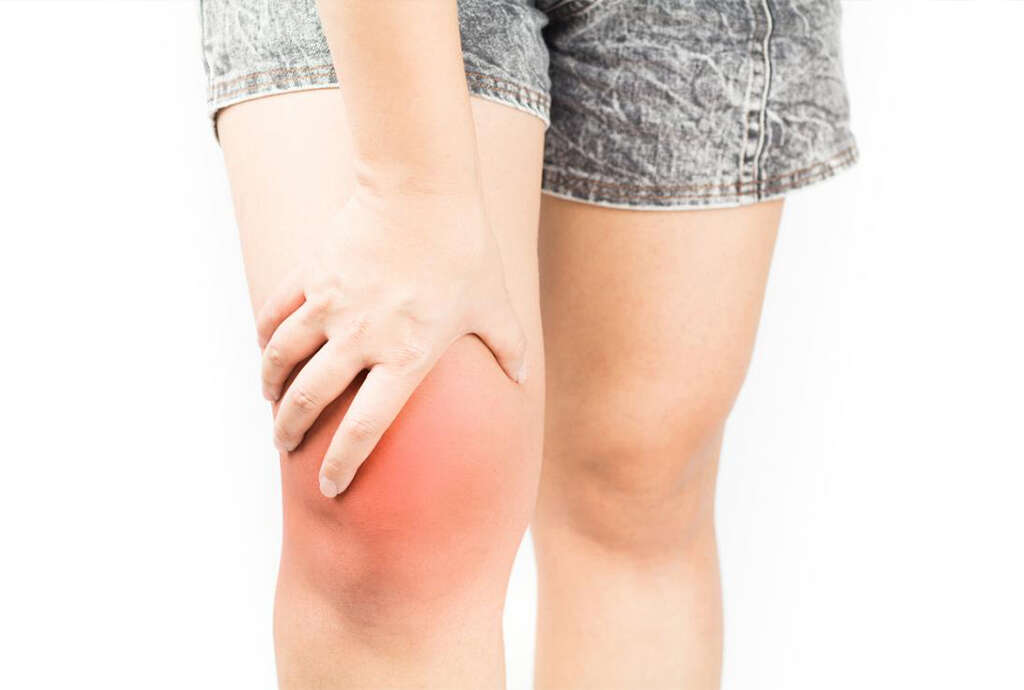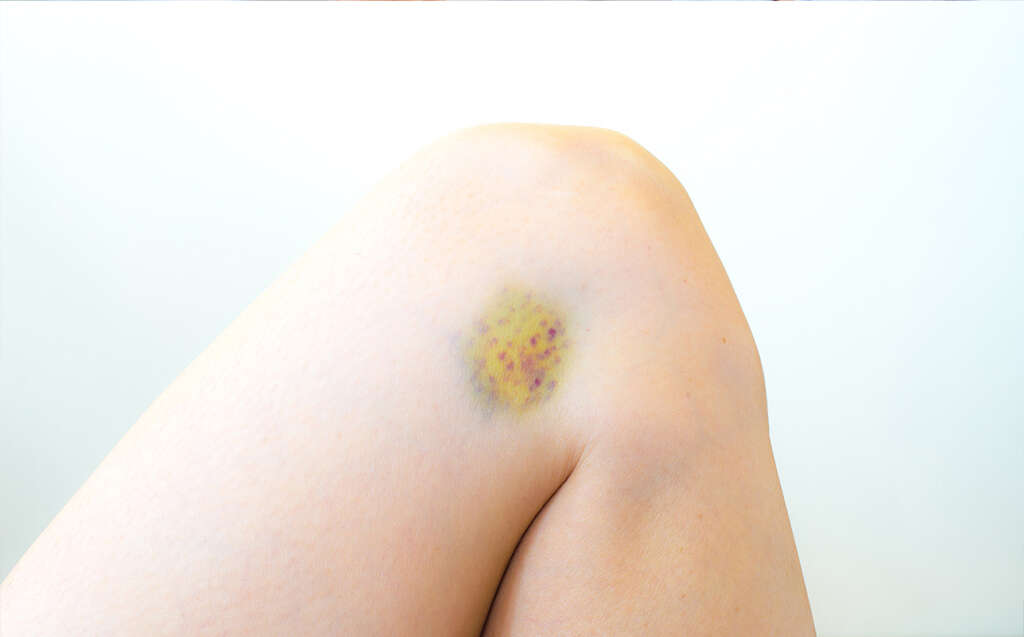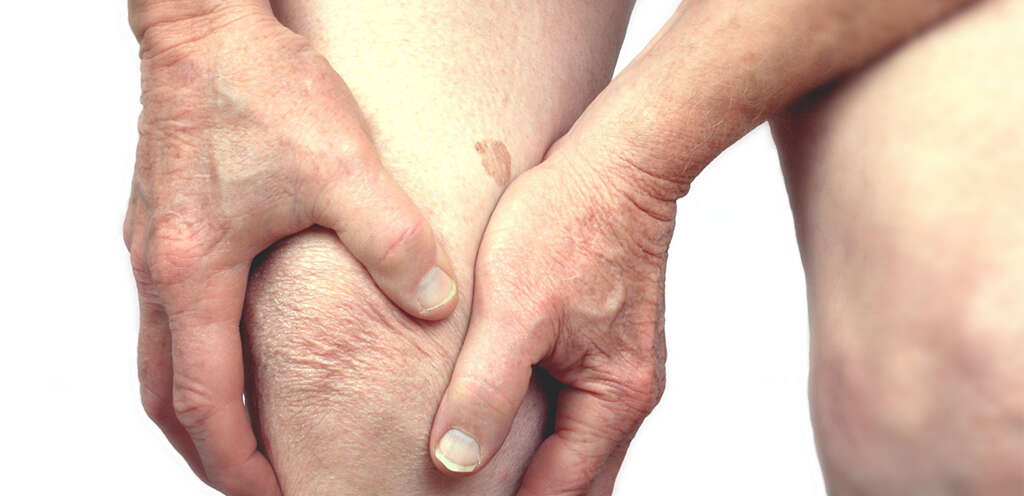10 Sprained Knee Symptoms
There are a number of symptoms that someone can experience if their knee is sprained. The symptoms tend to vary depending on the severity of the sprain – whether it’s grade I, grade II, or grade III makes a huge difference.
Many people are quick to jump to the conclusion that they’ve sprained something when they hurt themselves and the pain doesn’t subside quickly. However, there are many other injuries that can lead to lingering pain. A sprain is a condition in which a ligament is torn or damaged seriously. These are more likely to occur for people who often engage in high-intensity activities like sports, or people who work out extremely hard.
Sprains can cause symptoms like audible sounds in the injured area, strange sensations, and bruises. Today we’re going to outline the most common symptoms of sprains so you can determine whether you have one and whether or not you need to seek medical attention.

Symptom #1: Pain
The most common indicator that someone is experiencing a knee sprain is pain. However, experiencing pain in your knee does not necessarily mean that it is sprained. There are varying amounts of pain that a person might experience during a sprain. It can be a dull, throbbing pain – this generally occurs when the sprain is mild – or a more sharp and lingering pain if the sprain is more serious.
Pain is generally not present to a significant degree when you’re not using your knees but returns when you are being active. This makes it difficult for athletes to perform or for people to finish their daily tasks.

Symptom #2: Swelling
Another symptom that’s common for people who have sprained their knees is swelling. There is usually some degree of swelling present in all knee sprains, and the amount of swelling usually depends on exactly where the sprain is and how serious it is.
The swelling usually begins to go down as the injury subsides but can last anywhere from a few days to a few weeks. If the swelling doesn’t go down, then you may have a more serious injury.

Symptom #3: Difficulty Moving
One of the most difficult problems associated with a sprain is the fact that it makes it hard to move. Since your knee will be painful and swollen, you won’t have the same range of motion that you usually do. This is most difficult for athletes who need their full range of motion to engage in their activities.
However, anyone with a sprained knee will be limited from performing as well as they could at their daily activities. If the sprain is mild, topical pain relief and anti-inflammatory drugs can help restore some range of motion.

Symptom #4: Popping Noises
If you have a serious sprain, there’s a chance that you heard a popping or a snapping sound when the injury occurred. Of course, this can be hard to hear if you injure yourself in a loud environment such as on a sports field.
This sound usually suggests that one of your ligaments has torn. This means that you probably have a more serious, grade III sprain.

Symptom #5: Difficulty Holding Weight
If you have a more serious sprain, then you will probably have a torn or damaged ligament. This means that your knees won’t be able to hold the same amount of weight that they usually do.
The best way to manage this is to avoid putting weight on your knee until it heals. You can use a pair of crutches if you need to get around. Other than that, rest up a lot and try to minimize the amount of effort you put out.

Symptom #6: Buckling
If you have a sprain that’s mild enough that you can still hold weight, you still might not be able to function as well as you did otherwise. You may experience a buckling feeling if you try to move or put too much weight on your knees.
When an injury to the leg occurs, often times the quadriceps muscles are inhibited by the nervous system. Buckling of the knee occurs if the quadriceps muscles are not functioning correctly. This is a subconscious safety measure to avoid further injury to the knee.

Symptom #7: Bruises
Depending on the severity of a sprain, you might experience bruising. It’s quite likely that you’ll get a bruise regardless of which ligaments you injure; however, the bruising will likely be more apparent if you hurt the ACL ligament.
The bruising can show up on any part of the knee but is often most visible on the kneecap.

Symptom #8: Tenderness
Tenderness is a bit different than pain in that it’s not always noticeable unless you’re applying pressure to the sprained area. When you do, it will feel sensitive and it can be quite uncomfortable to push or apply too much pressure.
Tenderness can stick around for a while after most of the pain subsides. Less serious knee sprains can result in more tenderness and less pain.

Symptom #9: Discomfort
After the pain subsides, you will likely continue to experience some degree of discomfort in the area around the knee.
Just because the pain has gone doesn’t mean that you should stop taking care of yourself. While it may not hurt anymore, the injury is likely still healing.

Symptom #10: Popping Sounds and Feelings
If you attempt to walk on your sprained knee, you may experience a sensation that feels like popping. This is an indication that there may be continued swelling in the area or it could be one structure rolling over another structure.
It is not necessarily indicative of damage but caution should be taken as to not aggravate the area.












